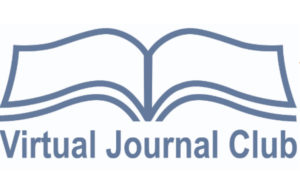ASPiH Journal Club

The Simulation Journal Club – a Community of Practice to support the simulation community in working to the evidence base.
We are delighted to announce that in late 2023, The Scottish Simulation Journal Club and the ASPIH Journal Club launched a new collaboration to become the 'The Simulation Journal Club'.
The purpose of the Simulation Journal Club is to create a virtual conversational space for members and guests to explore a wide range of the latest scholarly content in the simulation-based literature, unpacking the 'why', 'what', and 'how' for us as educators and clinicians - across our varying contexts.
The Simulation Journal Club values:
- Scholarship - really thinking about the evidence base of what we do.
- Engagement - creating a psychologically safe space for enjoyable and insight generating conversations that everyone can contribute to.
- Practicality - thinking about the 'now what's of the themes we explore and how we might practically engage with them in our simulation contexts.
The Simulation Journal Club meets monthly, with more information around the monthly theme, as well as meeting dates and times regularly updated below.
The reference/ paper link will be available on this page two week prior to the scheduled Journal Club date, to allow you some space and time for a read and reflection in the lead up to the gathering (though this is not in any way a requirement of joining us on the day).
Joining the Simulation Journal Club is easy, and you don't need to be an ASPIH member to do so. Simply visit www.aspih.org.uk/events and RSVP for the individual session, or email admin@aspih.org.uk to be added to the Simulation Journal Club mailing list and receive updates and monthly MS Teams invites to all future Simulation Journal Club events. You can unsubscribe at any time.
ASPIH members receive additional membership benefits from the Simulation Journal Club including access to all recordings as well as exclusive members only events throughout the year, including various online authorship team Q&A sessions and workshops to support the practical integration of many of the themes discussed throughout the year.
We are very excited to welcome you to the next Simulation Journal Club!
15th May 10am-11am
Ranjev Kainth will be presenting their paper
Transforming Professional Identity in Simulation Debriefing
A Systematic Metaethnographic Synthesis of the Simulation Literature
13th June 1pm-2pm
16th July 10am-11am
Debriefing Methods for Simulation in Healthcare: A Systematic review
14th August 1pm-2pm
12th September 10am-11am
Mirette Dube will be joining us presenting their Paper.
Harnessing system-focused simulation, debriefing and FMEA to inform healthcare blood transfusion safety and policy.
15th October 1pm-2pm
13th November 10am-11am

Past ASPiH Journal Club dates and papers
Examples of the questions you might consider as you review the article are:
What was the overall purpose of the study?
What methods were used?
What were the main results?
What are the strengths of the study?
What are the limitations of the study?
To what extent did the authors achieve what they set out to?
In what ways do the findings relate to your practice?
What further research might be carried out in the future?
Is there anything that you think is missing from the article?
What else would you like to know?
What did you notice about the article? What made you curious?
Identify some of the strengths and weaknesses. What could have been done to improve the study?
Identify the implications of the results found and whether you think they may or may not influence your practice beneficially or adversely?
What further research might be carried out in the future?
Consider the feasibility appropriateness, the meaningfulness and effectiveness (FAME) of the research findings to their own area of clinical practice?
